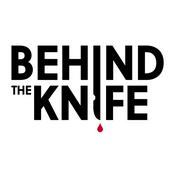Robotic surgery has moved from novelty to norm, and in this episode of Behind the Knife, Drs. James Jung and Joey Lew sit down with urologic pioneer and Medtronic CMO Dr. Jim Porter to dissect how we got here, what the data really say about “the death of laparoscopy,” and where competing robotic platforms like Hugo may take the field next. From ergonomics and education to economics and global access, they tackle both the hype and the hard questions around robotics as the future of minimally invasive surgery.
Hosts:
· James Jung, MD, PhD, Assistant Professor of Surgery, Duke University
· Joey Lew, MD, MFA, Surgical resident PGY-3, Duke University, @lew__actually
Learning Goals:
By the end of this episode, listeners will be able to:
· Describe key clinical, ergonomic, and educational drivers behind the rapid adoption of robotic surgery in the United States and globally.
· Summarize current evidence comparing robotic and laparoscopic approaches for common procedures, including where outcomes are equivalent, inferior, or clearly superior.
· Explain how surgeon ergonomics, trainee experience, and video-based learning influence practice patterns and learning curves in minimally invasive surgery.
· Discuss the role of cost, reimbursement structures, and market competition (e.g., Medtronic Hugo vs da Vinci) in shaping robotic adoption across different health systems.
· Anticipate how next-generation, task- or organ-specific robotic platforms may further change standards of care in minimally invasive surgery.
References:
· Violante T, Ferrari D, Novelli M, Larson DW. The Death of Laparoscopy - Volume 2: A Revised Prognosis. A retrospective study. Ann Surg. 2025 Jun 16. doi: 10.1097/SLA.0000000000006792. Epub ahead of print. PMID: 40518997. https://pubmed.ncbi.nlm.nih.gov/40518997/
· Yu Yoshida, Yoshiro Itatani, Takehito Yamamoto, Ryosuke Okamura, Koya Hida, Kazutaka Obama, Single-incision plus one robot-assisted surgery (SIPORS) using the Hugo robotic-assisted surgery (RAS) system for rectal cancer, Annals of Coloproctology, 10.3393/ac.2025.00787.0112, 41, 6, (586-591), (2025). https://pubmed.ncbi.nlm.nih.gov/41486916/
Please visit https://behindtheknife.org to access other high-yield surgical education podcasts, videos and more.
If you liked this episode, check out our recent episodes here: https://behindtheknife.org/listen
Behind the Knife Premium:
General Surgery Oral Board Review Course: https://behindtheknife.org/premium/general-surgery-oral-board-review
Trauma Surgery Video Atlas: https://behindtheknife.org/premium/trauma-surgery-video-atlas
Dominate Surgery: A High-Yield Guide to Your Surgery Clerkship: https://behindtheknife.org/premium/dominate-surgery-a-high-yield-guide-to-your-surgery-clerkship
Dominate Surgery for APPs: A High-Yield Guide to Your Surgery Rotation: https://behindtheknife.org/premium/dominate-surgery-for-apps-a-high-yield-guide-to-your-surgery-rotation
Vascular Surgery Oral Board Review Course: https://behindtheknife.org/premium/vascular-surgery-oral-board-audio-review
Colorectal Surgery Oral Board Review Course: https://behindtheknife.org/premium/colorectal-surgery-oral-board-audio-review
Surgical Oncology Oral Board Review Course: https://behindtheknife.org/premium/surgical-oncology-oral-board-audio-review
Cardiothoracic Oral Board Review Course: https://behindtheknife.org/premium/cardiothoracic-surgery-oral-board-audio-review
Download our App:
Apple App Store: https://apps.apple.com/us/app/behind-the-knife/id1672420049
Android/Google Play: https://play.google.com/store/apps/details?id=com.btk.app&hl=en_US



